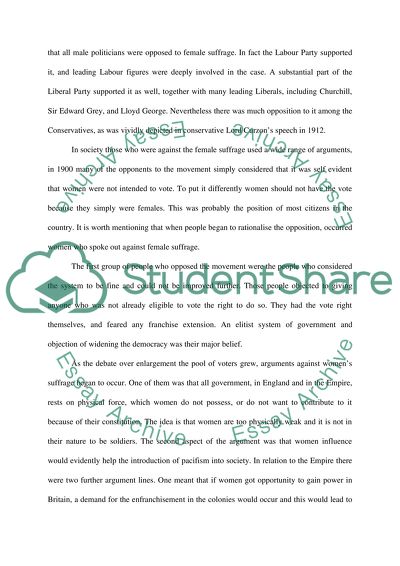Cite this document
(“Votes for Women Essay Example | Topics and Well Written Essays - 1500 words”, n.d.)
Retrieved from https://studentshare.org/politics/1504413-votes-for-women
Retrieved from https://studentshare.org/politics/1504413-votes-for-women
(Votes for Women Essay Example | Topics and Well Written Essays - 1500 Words)
https://studentshare.org/politics/1504413-votes-for-women.
https://studentshare.org/politics/1504413-votes-for-women.
“Votes for Women Essay Example | Topics and Well Written Essays - 1500 Words”, n.d. https://studentshare.org/politics/1504413-votes-for-women.


